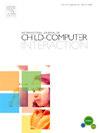Culturing computation: A multi-case study on students as ethnocomputing researchers during a virtual after-school program
Q1 Social Sciences
International Journal of Child-Computer Interaction
Pub Date : 2024-12-15
DOI:10.1016/j.ijcci.2024.100719
引用次数: 0
Abstract
Ethnocomputing is a field about the co-constitutive relationships of culture and computational technology, digital and analog. It assumes that all technologies are value-laden and that cultural activities, practices, designs, and knowledge can be computational. Within education, ethnocomputing has inspired the design of software and hardware to help children study the computing ideas that are embedded in Indigenous and vernacular epistemologies, designs, and practices, such as African American cornrow braiding, Anishinaabeg quilting, Ghanaian Adinkra stamping, and more. Not only does this provide a way to add epistemic diversity to computing curricula but it is also a challenge to Eurocentric histories of computer science. Quantitative research on these educational technologies has been promising in terms of supporting children's attitudes toward and content knowledge of computing. This research also suggests that just being exposed to these technologies may not be enough for students to make the connections between culture and computing that ethnocomputing assumes as its foundation. To address this challenge, we report findings from a multi-case study of four Black high school students who took on roles as ethnocomputing researchers during a five-week virtual after-school program. Instead of focusing on if the program supported their computer science content knowledge, we sought to study the students' meaning-making and knowledge production practices on culture and computing in their ethnocomputing research. Our findings show that while only two of the four children felt confident identifying themselves as ethnocomputing researchers by the time the program ended, all students were able to express nuanced and unique ideas about culture-computing relationships that were relevant to ethnocomputing. We end with some recommendations about framing the image of the “researcher” in future ethnocomputing education.
文化计算:在一个虚拟课外项目中,对学生作为民族计算研究者的多案例研究
民族计算是一个关于文化和计算技术,数字和模拟的共构关系的领域。它假设所有的技术都承载着价值,文化活动、实践、设计和知识都是可计算的。在教育领域,民族计算启发了软件和硬件的设计,以帮助孩子们学习嵌入在土著和当地认识论、设计和实践中的计算思想,例如非洲裔美国人的小辫编织、Anishinaabeg的绗缝、加纳的Adinkra冲压等等。这不仅为计算机课程提供了一种增加认知多样性的方法,而且也是对以欧洲为中心的计算机科学史的挑战。在支持儿童对计算的态度和内容知识方面,对这些教育技术的定量研究一直很有希望。这项研究还表明,仅仅接触这些技术可能不足以让学生在文化和计算之间建立联系,而民族计算认为这是其基础。为了应对这一挑战,我们报告了四名黑人高中生的多案例研究结果,他们在为期五周的虚拟课外项目中担任种族计算研究人员的角色。我们没有关注该项目是否支持他们的计算机科学内容知识,而是试图研究学生在他们的民族计算研究中对文化和计算的意义制造和知识生产实践。我们的研究结果表明,虽然在项目结束时,四个孩子中只有两个自信地认为自己是民族计算研究人员,但所有的学生都能够表达与民族计算相关的文化计算关系的微妙和独特的想法。最后,我们就如何在未来的民族计算机教育中塑造“研究者”的形象提出了一些建议。
本文章由计算机程序翻译,如有差异,请以英文原文为准。
求助全文
约1分钟内获得全文
求助全文
来源期刊

International Journal of Child-Computer Interaction
Social Sciences-Education
CiteScore
7.20
自引率
0.00%
发文量
73
 求助内容:
求助内容: 应助结果提醒方式:
应助结果提醒方式:


